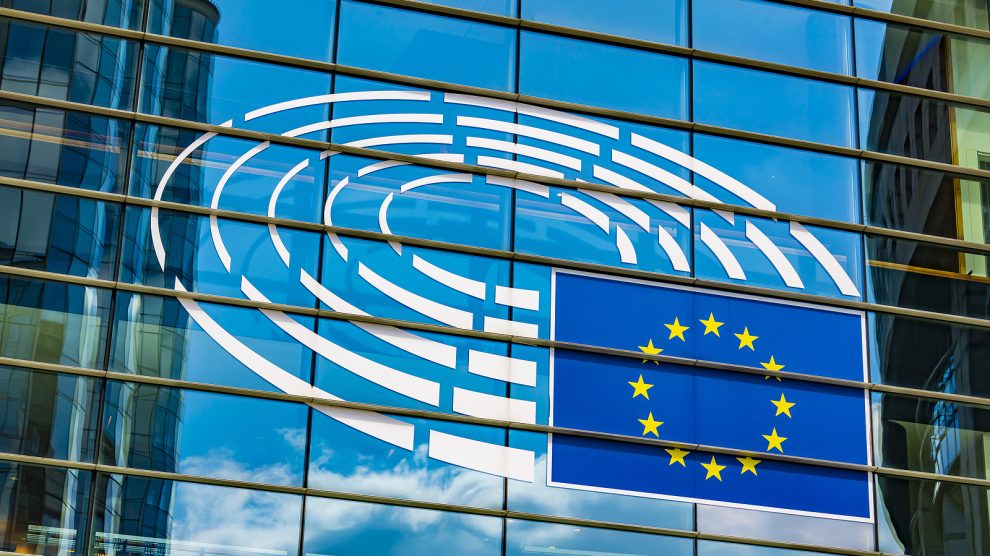Twenty years ago this week, eight CEE countries joined the EU. According to analysis by the Polish Economic Institute, the GDP per capita of the eight countries in the region is 27 per cent higher than it would have been had they not joined.
The real GDP per capita at purchasing power parity (PPP) of Czechia, Estonia, Hungary, Latvia, Lithuania, Poland, Slovakia and Slovenia, the eight countries of emerging Europe which joined the EU on May 1, 2004, is 27 per cent higher than it would have been had the eight not joined the EU, according to a new report from the Polish Economic Institute (PEI), published this week to mark the 20th anniversary of the bloc’s largest ever enlargement.
- The success of the EU’s 2004 enlargement must drive a new wave of expansion
- Rethinking how to communicate EU enlargement in a year of multiple elections
- Eastern Europe’s recovery remains on track
Although it is apparent that there was a decline in growth associated with the 2008 financial crisis, which affected income growth in the region compared to alternative growth paths, from 2014 onwards the eight were achieving higher growth rates than they would have achieved without EU membership.
The share of the eight 2004 accession countries in the EU economy increased from six to 8.5 per cent, while two countries, Poland and Lithuania, increased the value generated in industrial production during this period, while the EU as a whole saw a decline of more than one per cent between 2004 and 2022.
While the countries of Central Europe have been beneficiaries of European funds (in total, they have received 355 billion euros), the PEI’s report, The Big Bang Enlargement. 20 Years of Central Europe’s Membership in the EU argues that the greatest benefits, however, have come primarily from the single market: the inflow of foreign direct investment, the cumulative value of which has increased 21-fold, and integration into global supply chains. The value added generated in ICT services, for example, doubled between 2008 and 2021.
Nevertheless, the region needs to continue to close the development gap, primarily in increasing innovation and improving quality of life and education.
“One of the most significant factors that influenced the economic development of our region was Central Europe’s insertion into EU supply chains,” says Marek Wąsiński, head of PEI’s World Economy Team.
“This has attracted an influx of foreign investment, led to a fivefold increase in the value of merchandise exports and increased their level of sophistication. EU integration turned Central Europe into an export hub. Although most of the products and services were supplied to the EU, almost half of the added value eventually found its way—also through indirect exports—to markets around the world.”
Benefits beyond the economy
In addition to economic benefits, EU enlargement has also brought about social success for the new members. In all eight countries of the region, indicators measuring quality of life have increased significantly. These include life expectancy, schooling years and per capita income levels. Slovenia currently has the region’s highest human development index (23rd in the world) and Hungary the lowest (46th).
Furthermore, in five out of the eight member states, the share of people at risk of poverty has fallen below the EU average, and the perception of corruption has decreased everywhere except Hungary and Slovenia.
Living standards in the countryside have also improved. Despite significant improvements in living standards, the Central European region still lags behind in terms of investment in health care or research and development. Although the percentage of those with a university degree has increased, there were still few graduates in technical fields.
Significant potential for digital development
The countries of the region almost doubled the value added generated in ICT services between 2008 and 2021, from 24.4 billion euros to 45.1 billion euros. In relation to the total GDP of the countries in question, there was an increase from 3.4 per cent to 4.1 per cent.
“The added value of the IT/ICT sector has doubled over the past 20 years,” points out Ignacy Swiecicki, head of PEI’s Digital Economy Team. “Today, among the eight countries, the sector is the largest in Poland and Czechia and together accounts for almost two-thirds of the total value added.
“Still, the percentage of ICT professionals among all employees is lower than the EU average, with the exception of Estonia. This indicates a lower level of development of the ICT sector, an insufficient number of professionals in other sectors as well, but also a significant potential for digital development. Catching up is a significant challenge for the eight.”
Energy transition
Joining the EU meant profound changes in the energy sector and climate and environmental policies for the eight countries. Both environmental and climate standards, the structure of energy production and the carbon intensity of the region’s economies have changed. (In contrast to the EU as a whole, in Central Europe emission reductions took place primarily as a result of the 1989-1991 system transformation rather than after EU accession).
Accession accelerated renewable energy development in the eight countries. In 2004-22, the share of renewable energy sources in Poland’s final energy consumption increased by 2.5 times to reach 16.9 per cent, while the share of renewables in electricity production reached 21 per cent in 2022, an increase of more than 10 times compared to 2004 and only slightly lower than the EU average rate (23 per cent).
The transformation of the energy, transport and heating sectors has improved air quality. Between 2005 and 2021, the number of premature deaths related to fine particulate air pollution across the EU fell by 75 per cent. Air pollution in the EU for PM2.5 particulate matter fell by 28 per cent, nitrogen oxides by 47 per cent, sulphur oxides by 80 per cent between 2005 and 2021.
These changes also had a positive impact on air quality in the 2004 intake, where PM2.5 pollution fell by 31 per cent, nitrogen oxides by 15 per cent, sulphur oxides by 51 per cent.
Unlike many news and information platforms, Emerging Europe is free to read, and always will be. There is no paywall here. We are independent, not affiliated with nor representing any political party or business organisation. We want the very best for emerging Europe, nothing more, nothing less. Your support will help us continue to spread the word about this amazing region.
You can contribute here. Thank you.







Add Comment